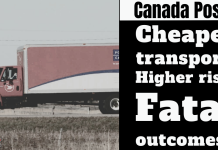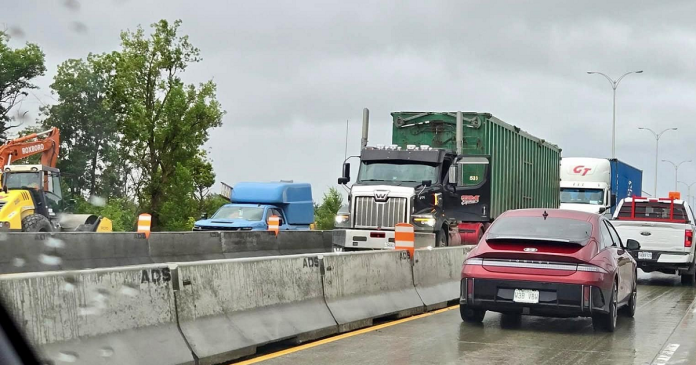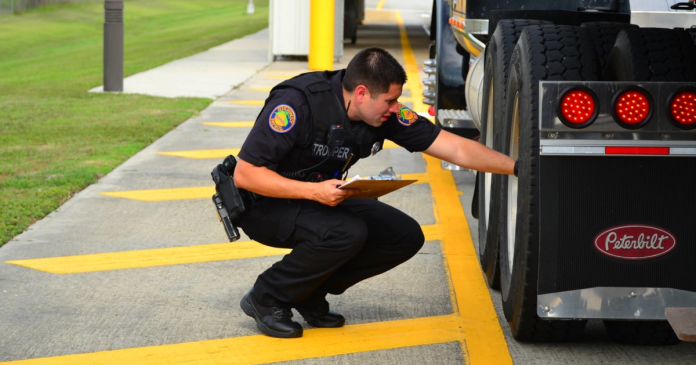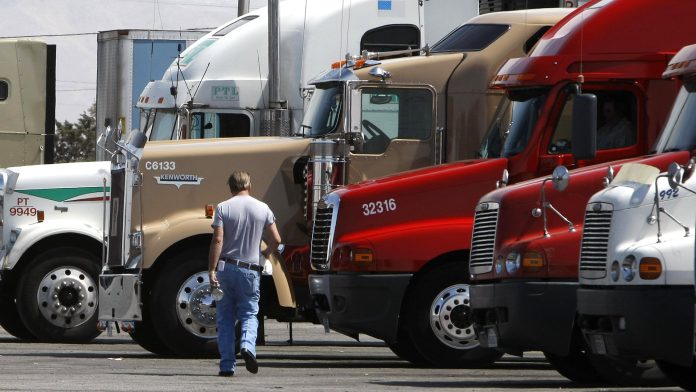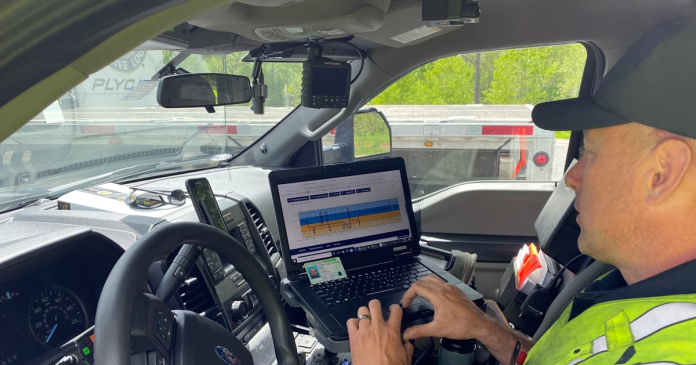Violent Road Rage Incident Highlights Growing Threat to Truckers – On Wednesday, a harrowing incident occurred on the Île-aux-Tourtes Bridge in Vaudreuil, Quebec. A witness reported that a truck allegedly blocked a lane or collided with another truck, sparking a heated confrontation between the two drivers. During the altercation, the female truck driver reportedly pushed the other driver, who then retaliated with a punch that left her unconscious.
The aggressive truck driver was eventually restrained by M. Gervais, who was also present at the scene: “I stepped in to separate the guy because he was still very aggressive towards the woman even after she was already on the ground. I was working on the nearby construction site and ensured that emergency services could access the scene quickly through our site. A woman came to assist the injured driver. She took a hard hit to the head. I hope it’s not too serious.” The victim was transported by ambulance, reportedly suffering from at least one fracture.
The Rise of Road Rage
Truck drivers, who are already accustomed to the challenges of the roads, now face an increasing threat: road rage, as tragically demonstrated by this violent encounter. According to a new study conducted by Nextbase Dash Cams, the world leader in dash cam technology, a staggering 79% of drivers in the United States have experienced road rage or aggressive driving. Even more concerning is that over a third (34%) of these drivers encounter such situations multiple times a month.
Ranked just behind distracted driving among the most significant dangers on the road, road rage is becoming an increasingly urgent issue. With the upcoming Labor Day weekend, when roads are expected to be more congested than usual, truck drivers will need to navigate through heavier traffic, which could exacerbate tensions and make driving even more hazardous.
The Emotional Toll of Road Rage
The Nextbase Dash Cams survey reveals that road rage triggers intense emotional reactions among drivers. Nearly half of the respondents (45%) reported feeling nervous, 44% angry, 34% terrified, and 26% furious when confronted with such aggression.
Essential Tips to Avoid Dangerous Altercations
Sergeant Chris Palaganas, a seasoned law enforcement officer, offers these five essential tips for truck drivers who may encounter an aggressive driver:
- Stay in Your Vehicle: Never leave your truck. The other driver’s mindset is unpredictable, and they could be armed or violent.
- Move to a Safe Location: If you feel threatened, drive to a well-lit and populated area, such as a police station or fire station, if possible.
- Be a Good Witness: Use a reliable dash cam to capture high-quality footage and provide verbal documentation to accurately record the situation.
- De-escalate the Situation: If approached by an aggressor, calmly indicate the presence of the dash cam without aggravating the situation.
- Prioritize Your Safety
Remember, your ultimate priority is to arrive safely at your destination. As road rage incidents continue to rise, truck drivers must increasingly rely on dependable safety technologies. Dash cams are not only valuable for capturing high-definition footage but also serve as critical safety tools that can make a real difference in ensuring your security on the road.
Picture : Stephane Brunet URGENCES VAUDREUIL-SOULANGES & BEAUHARNOIS-SALABERRY



